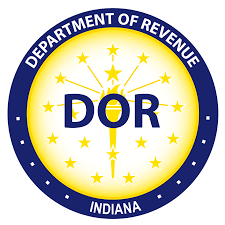Online shopping? Be sure to stay safe
/Individuals should take steps to protect their identities online
INDIANAPOLIS — The holiday shopping season is in full swing, and the Indiana Department of Revenue (DOR) is partnering with the Internal Revenue Service (IRS) to encourage online shoppers to be extra vigilant to protect their important financial data.
The holidays offer cybercriminals the perfect opportunity to steal sensitive data and turn it into cash by either draining financial accounts, charging credit cards, creating new accounts or even using stolen identities to file a fraudulent tax return for a refund.
“We all need to proceed with a heightened sense of awareness during the holiday season to protect our financial and personal information,” said DOR Commissioner Adam Krupp. “Please don’t let your guard down, especially during the season of giving, because cybercriminals, in particular, are looking to prey upon Hoosier consumers.”
The IRS and DOR have several tips to help individuals protect themselves while shopping online:
Avoid unprotected Wi-Fi. Unprotected, public Wi-Fi hotspots may allow thieves to view transactions causing a huge risk if you make any online purchases or financial transactions.
Shop at familiar online retailers. Generally, sites with the “s” designation in “https” at the start of the URL are secure. Be sure to also look for the “lock” icon in the browser’s URL bar.
Learn to recognize and avoid phishing emails. Look for misspellings and bad grammar. Never click on links or attachments from unknown or suspicious sources and remember, neither DOR nor the IRS uses email to send or request sensitive information.
Keep a clean machine. Use security software to protect against malware that may steal data and viruses that may damage files. Set it to update automatically, so your device always has the latest security defenses.
Use strong and unique passwords. Be sure to use different passwords for each account and use a password manager if necessary. Experts suggest a minimum of 10 characters.
Use multi-factor authentication. If it is offered, set up your multi-factor authentication for accounts. This means that users may need a security code, usually sent as a text to a mobile phone, in addition to usernames and passwords.
Encrypt and password-protect sensitive data. If keeping financial records, tax returns or any personally identifiable information on computers, encrypt this data and use a strong password.
To learn more about how to prevent identity theft, visit DOR’s website at www.dor.in.gov and click on “Stop ID theft” on the menu.




















